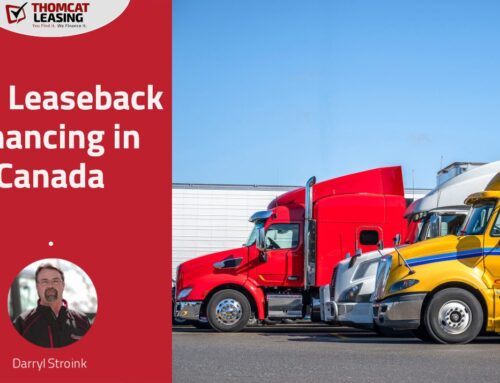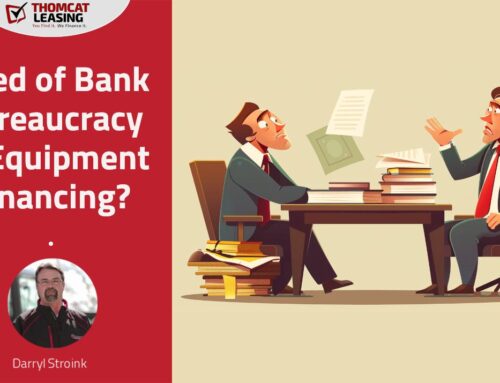Navigating Approvals for Your Next Equipment Lease
In the dynamic world of business, staying ahead often requires acquiring the right equipment for the job. Many small businesses in Canada rely on equipment leasing to obtain the necessary assets without burning a hole in the budget.
Nothing is more frustrating than getting close to a lease approval, only to be turned down because of a credit score. Especially if you didn’t realize your credit score was low or damaged. Let’s take a look at a crucial aspect of equipment leasing approvals – your credit score.
Understanding Credit Scores in Equipment Leasing
When you apply for equipment leasing, your credit score and credit history play pivotal roles in the approval process. Lenders use these metrics to gauge your financial responsibility and assess the risk associated with providing you a lease. While a pristine credit score might lead to a seamless approval, a damaged credit history can pose challenges.
7 Tips for Improving a Damaged Credit Score
1. Check Your Credit Report:
Start by obtaining a copy of your credit report. Ensure all the information is accurate and dispute any discrepancies you may find. A clean credit report is the foundation for rebuilding your score.
2. Pay Your Bills on Time:
Timely payments are a cornerstone of good credit. Set up reminders or automatic payments to avoid missing due dates. Consistent, punctual payments demonstrate financial responsibility to lenders.
3. Reduce Outstanding Debts:
Aim to lower your credit card balances and any outstanding debts. High credit utilization can negatively impact your score. Tackling your debts head-on will not only improve your creditworthiness but also free up financial resources in the future.
4. Diversify Your Credit Portfolio:
A mix of different types of credit, such as credit cards, installment loans, and retail accounts, can positively influence your credit score. However, manage these responsibly and avoid opening too many new accounts at once.
5. Negotiate with Creditors:
If you’re struggling with payments, don’t hesitate to communicate with your creditors. They may be open to negotiating more favorable terms or creating a realistic repayment plan. Try not to ask for loan forgiveness, this will negatively impact your credit.
6. Seek Professional Guidance:
If the task seems overwhelming, consider consulting a credit counselor. These professionals can provide personalized advice and strategies to improve your credit score. With that said, be sure you corroborate and understand the impact of any actions recommended by a credit counselor.
7. Do NOT Declare Bankruptcy:
Obviously, declaring bankruptcy should be a last resort. We’ve all joked about declaring bankruptcy and leaving all our financial problems behind. Unfortunately, the reality is that this will destroy your credit for far longer than you probably think. Likewise, a “Consumer Proposal” is almost as bad as a bankruptcy. A consumer proposal is when you consolidate your debt and negotiate with your lenders to repay only a percentage of the outstanding debt. It looks the same as a bankruptcy on your credit statement.
How to Handle a Lease Rejection because of a Credit Score
In this day and age, a lot of Canadians struggle with finances and debt. If you are turned down for an equipment lease, keep a cool head and figure out why. Get to the bottom of the problem in your credit history and use the tips above to begin improving it.
By understanding and actively improving your credit score, you can enhance your chances of securing a hassle-free equipment lease. At Thomcat Leasing, we want to see Canadian small businesses succeed. While we can’t always overcome bad credit today, we will always try to help you grow in the future.
Ready to take the next step? Visit our website and get a 60-second lease estimate. Your journey to better equipment and business success starts here!






